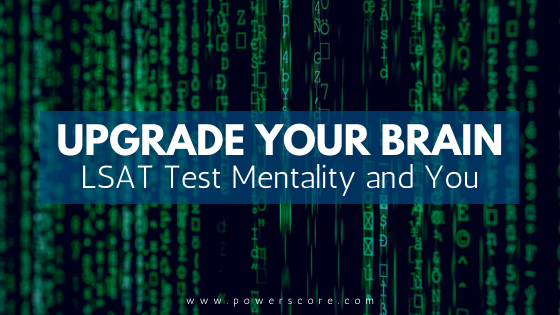Stressing about the LSAT? Dreading practice tests? Everyone suffers from some degree of test anxiety. It’s completely natural and having a healthy recognition of the gravity of the test can be a helpful motivator. But, did you know you have an LSAT prep superpower?
Your Hidden Superpower
There’s an excellent TEDx Talk by Dr. Rock Hanson titled Hardwiring Happiness. Dr. Hanson is a neuroscientist who focuses on issues relating to neuroplasticity. Unfortunately, there’s not pseudo-science elixir for instant intelligence and memory boosts. But, you can hack your brain and use the practice of purposeful attention to change how you perceive events and feel about your circumstance.
Dr. Hanson believes we can use the concept of neuroplasticity to help us deal with stressful situations more effectively. The thought is that less stress will generally lead to happier lives. The human brain retains the structure of the brains our earliest hunter-gatherer ancestors had. When we experience stress, our body releases the hormone cortisol. This hormone stimulates the amygdala, which Dr. Hanson refers to as the “alarm bell of the brain.” As we continue to encounter stressful situations, we become more sensitive to stress. Apparently, the brain is “very good at learning from bad experiences, but bad at learning from good ones.” This is because our ancestors had to learn from bad experiences that were life-or-death. They needed their brains to be like Velcro for the bad. The problem today is that our brains also tend to be like a Teflon non-stick pan for the good.
Through research, we know that cortisol eats away at the hippocampus. In some people, the loos is as great as 25%! This means that people under chronic stress lose some ability to tap into their visual/spatial memory. But here’s the good part. Not only does the brain change, but you can change your brain. Just like chronic exposure to stress can eat away at your capabilities, chronic exposure to good experiences gives you great resilience when you face negative events. This ultimately helps you cope with stress and avoid the damage it can cause.
How to Hack Your Brain
Remember when I said that our brains are like Velcro for bad experiences and like Teflon for good experiences? We can change this property by being intentional about the way we fix our attention on good experiences. Instead of letting a good experience simply pass you by without consideration, stop and savor the experience!
Dr. Hanson believes that if we hold the positive experience in our thoughts for 15 to 20 seconds, we can move our consciousness of that experience from our short term memory buffers to long term storage. Doing this forces neurons associated with pleasant experiences to fire more frequently. And, “as neurons fire together in particularly patterned ways, it changes the structure of the brain.” The neural pathways start creating new connections with each other and they become stronger and more receptive. Little by little, we change our brains from Teflon to Velcro when it comes to positive emotions.
How This Can Relate to the LSAT
How can this help you with the LSAT? Think for a moment about how you feel when you start a practice test or begin a Logic Game. When you turn the page in the Logical Reasoning section, do you experience a positive or a negative emotion? Perhaps you’ve never consciously considered how you feel while you’re taking the test. Our guess is that, for most people and possibly you, the feeling is not good.
Thoughts of doubt, inadequacy, shame, and pressure rage to the surface. Am I smart enough? Will I ever be a lawyer, or should I leave that dream behind? These are all thoughts that hound us as we take a test like the LSAT. It triggers anxiety and releases cortisol into our brains. Some level of short-term stress can be extremely helpful, but those are the feelings you don’t control and can’t harness. Negative emotions decrease your performance and distract you from the game/passage/stimulus in front of you.
You can change the ones that affect you in the moment. Don’t let yourself succumb to them and try to do more than cope with them! Train your brain to respond positively to the LSAT. Instead of focusing your energy on your failures while studying, pay attention to your successes. Savor the feeling of success when you get a question right. Hold on to that satisfaction for fifteen or twenty seconds and truly experience it. Do this every time you do drills or take practice tests. If not for every question you get right, at least some of them, perhaps the more difficult ones. Even when you miss a question, give yourself some credit for the things you did right, even if you ultimately got the question wrong.
Over time, little by little, this process will reprogram your brain for the better, creating neural pathways that improve the way you experience the test. You can replace your seemingly instantaneous and unconscious negative responses to the LSAT with positive ones. This doesn’t mean that you ignore your problem areas or simply pass over the questions you got wrong. Just don’t let them bog you down. Don’t view them as failures, but rather as opportunities to learn more about the test and to improve your next performance. Much of how we experience the events of our lives is a choice. For the LSAT, and all things, choose to be positive.

